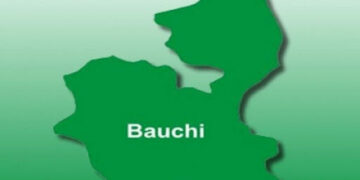It is no news that the tourism industry which encompasses the hospitality, entertainment, transport industries and many medium and large-scale businesses is the backbone of many non-mineral economies, and mono-mineral ones like Nigeria.
TV Monde World Report noted that global tourism hit $1.2 billion in 2016, with Europe as the primary destination, followed by the Asia-Pacific Region. The sector is further expected to grow by 2 to 3 percent until 2050, and will directly or indirectly create 1 out of 11 jobs worldwide.
Tourism, however, contributes five percent of global greenhouse gas emissions. We emit greenhouse gases when we fly, drive or ride a train to our tour destination. We also rack up carbon footprint when we litter or degrade natural environment. Hence, the need for ecotourism. Ecotourism is responsible travel to non-natural and natural areas that conserves the environment, sustains the wellbeing of the local people, and involves the interpretation and education of both communities and tourists. It grew out of the global environmental movement to in the 70s in response to conventional tourism’s adverse effect on people and the planet.
Ecotourism promotes the conservation of wildlife and natural habitats. It ensures that natural resources are managed in such a way that they are safe for future generation. Ecotours helps travelers understand the value and importance of conservation, and help create more mindful tourists and human beings. In addition, it creates local job opportunities and opportunities to learn new skills.
But how sustainable is ecotourism?
An ecotourism lodge in Namibia located 500km away from the city center, whose drinkable water are treated on site, the food grown locally, and the electricity is solar-powered, costs 400 euros minimum, per night.
In Nigeria, as of 2021, an ecotour tour package to Calabar for three nights costs N180,000. The costs include accommodation at N25,000k per night, round ticket flights at N70,000, and further covers feeding, giftpacks and other eco activities such as tree planting one engages in throughout the tour, said Abigail Olagbaye, ex Miss Tourism (2005) beauty queen and founder of DESIGO Tourism Development and Facility Management Company.
Financially ecotourism is expensive. However, it is the experience and impact of ecotourism that sets it apart from the conventional tourism.
“It is about getting involved with the people. You go to visit a destination to learn about their culture, their forests, spices etc. When you travel there are carbon emissions. We engage in what we call carbon offsetting. This is means that when we organize ecotours, we plant trees to offset emissions. The tourists plant trees equivalent to the carbon emissions the ecotourists rack up throughout the trip.”
Thus, in spite of the challenge of shifting fixed mindset, lack of political will by authorities to center ecotourism, and the need for collaboration of variant parts of the tourism sector playing its part to the protection, and preservation of nature and the environment, Olagbaye said the future of ecotourism remains bright.





